The 7th International Conference on Patient- and Family-Centered Care
|
|
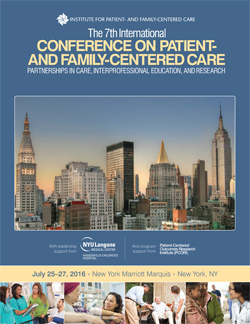 IPFCC's 7th International Conference on Patient- and Family-Centered Care: Partnerships in Care, Interprofessional Education, and Research, will be in New York City, July 25-27, 2016. IPFCC's 7th International Conference on Patient- and Family-Centered Care: Partnerships in Care, Interprofessional Education, and Research, will be in New York City, July 25-27, 2016.
Join us at The 7th International Conference to discover what is happening across the United States, Canada, and other countries in patient- and family-centered care. The three-day program offers more than 115 presentations and 80 posters showcasing strategies, tools, and evidence to inspire you to create or enhance partnerships with patients and families to improve safety, quality, and the health care experience for all—patients, families, and health care professionals.
![research[1]](./issue91_files/a8cbffe56f6b4f02977b70ccb0fa4304.jpg) The Patient-Centered Outcomes Research Institute (PCORI) is providing program support for one of the Conference’s key themes, Partnerships in Research. Twenty presentations and ten posters will highlight research initiatives in which patients, families, clinicians, staff, and researchers are collaborating. Look for the magnifying glass icon in the program brochure to find the sessions featuring research. Seven teams that are participating in a PCORI-funded project that IPFCC is leading will be presenting their efforts to engage patient and family advisory councils in all phases of research. Conference attendees are invited to meet and network with these teams, and others interested in research partnerships, at a Special Networking Breakfast on Wednesday, July 27th from 7-8 am.
The Patient-Centered Outcomes Research Institute (PCORI) is providing program support for one of the Conference’s key themes, Partnerships in Research. Twenty presentations and ten posters will highlight research initiatives in which patients, families, clinicians, staff, and researchers are collaborating. Look for the magnifying glass icon in the program brochure to find the sessions featuring research. Seven teams that are participating in a PCORI-funded project that IPFCC is leading will be presenting their efforts to engage patient and family advisory councils in all phases of research. Conference attendees are invited to meet and network with these teams, and others interested in research partnerships, at a Special Networking Breakfast on Wednesday, July 27th from 7-8 am.
Early Bird Pricing Through May 23rd!
 Register by May 23, 2016 to take advantage of Early Bird pricing for IPFCC's International Conference! Register by May 23, 2016 to take advantage of Early Bird pricing for IPFCC's International Conference!
Learn more about the International Conference in the Conference Brochure.
|
| Just Announced! Open Family Presence Policy in Saskatchewan’s Health Facilities |
|

Saskatchewan is the first Canadian province to announce an open family presence policy across all its health care facilities.
According to the May 11, 2016 Saskatchewan Health Quality Council press release, “Health regions are now moving toward more flexible visiting hours in health facilities, which will welcome families 24 hours a day, seven days a week, according to the patient’s preference. The approach recognizes that families are important partners in patient care, and are not simply visitors. The patient will define who comprises their family, such as relatives or other people they are close to.”
Saskatchewan Health Minister Duncan stated, “This is a great example of improving the patient experience, and we support it 100 percent. Loved ones play an essential role in improving patients’ health, and help further our goal of providing high-quality, patient-focused care. To me, this policy change is an easy one to make.”
According to patient and family advisor Serese Selanders, “If I had been allowed to be at my mom’s bedside on my own terms, I would not have felt as much anxiety. The time left with my mom was measured in days. Every hour that we were prevented from seeing her was time we will never get back. Open family presence will change health care by helping everyone recognize that the ‘team’ includes families and loved ones.”
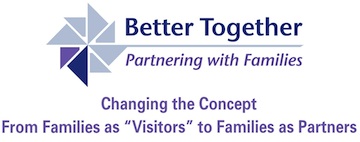
Learn more about IPFCC’s Better Together: Partnering with Families international campaign launched in 2014, designed to change visiting policies in 1,000 hospitals by 2017. As part of the campaign, IPFCC developed a free online toolkit of materials for hospitals. The Canadian Foundation for Healthcare Improvement (CFHI) launched a national Canadian campaign in 2015, Better Together: Partnering with Families Campaign, based on IPFCC’s Campaign.
|
Ronald McDonald House Charities is Newest Partner in IPFCC’s Better Together Campaign
|

IPFCC welcomes Ronald McDonald House Charities
as the newest partner in its Better Together Campaign to eliminate restrictive “visiting hours” for families in hospitals, and to encourage hospitals to adopt a welcoming “family presence” policy where the family—as defined by the patient—is welcomed 24/7 as an important part of the patient’s care team.
|
Shared Decision-Making in the Emergency Department ~ Patient Advisors Involved in Developing Decision-Making Tools |
 In a recent article in the Wall Street Journal, Laura Landro writes about New Tools Help Patients Make Tough Decisions in the ER. In a recent article in the Wall Street Journal, Laura Landro writes about New Tools Help Patients Make Tough Decisions in the ER.
More hospitals and health care systems are embracing patient- and family-centered care promoting meaningful partnerships among patients, families, and care providers. Increasingly, emergency department physicians are engaging in shared decision-making with patients and their loved ones, especially in situations in which there is more than one appropriate option for care. Unlike shared decision-making in outpatient or ambulatory settings, the emergency department environment “has been considered the least-conducive environment for that type of collaboration between patients and doctors, even though there is no evidence it can’t work,” according to Erik Hess, Associate Professor and Chair of Research in the Department of Emergency Medicine at Mayo Clinic in Rochester, Minnesota.
According to Landro a “survey of ER doctors in 29 states, published last year in the journal Academic Emergency Medicine, reported on physicians’ perceptions of shared decision-making, including the beliefs that “Many patients prefer that the physician decides...When offered a choice, many patients opt for more aggressive care than they need” and “It is too complicated for patients to know how to choose.”
Landro’s article reports on a variety of research that is ongoing to develop decision-making aids that can be used to facilitate shared decision-making in the emergency department, and provide evidence about their use. For example, Dr. Hess and his team at the Mayo Clinic, with the help of a patient advisory group, developed Chest Pain Choice. This aid “includes information on the diagnosis, displays a patient’s 45-day risk of a heart attack and options for care. These include admission to an observation unit for tests, follow-up with a heart doctor within 24 to 72 hours—or letting the ER doctor make the decision.” According to Dr. Hess, “Our goal is not to put the decisions in patient’s laps so they feel abandoned, but to involve them in the decision process to the degree they wish.” This research showed that, with no risk to their health, these engaged patients were less likely to receive cardiac testing than the control group. Patients in the control group received standard explanations and were more likely to choose letting the doctor make the decision.
Read more about current research on these decision-making aids.
|
Key Role of Patient and Family Advisory Council Leadership in Facilitating Patient-Researcher Partnership in Patient-Centered Outcomes Research
|
|
 In the May 2016 article, Implementing a Pragmatic Framework for Authentic Patient–Researcher Partnership in Clinical Research, published in the Journal of Comparative Effectiveness Research,* Fagan, et al., outline “a pragmatic framework of collaborative engagement and partnership between research investigators and patient and family advisors [PFAs] from existing patient and family advisory councils (PFACs) at [Brigham and Women’s Hospital,] an academic medical center. This framework includes the role for each party throughout the clinical research process (launch, hypothesis, specific aims, measures/methods, results, interpretations/recommendation and dissemination).” Included are the steps to partnering with an established PFAC, describing operational roles and actions through each stage of the research study. The authors provide illustrations from their own work engaging PFAs in research at the Brigham and Women’s Hospital (BWH) Center for Patients and Families. In the May 2016 article, Implementing a Pragmatic Framework for Authentic Patient–Researcher Partnership in Clinical Research, published in the Journal of Comparative Effectiveness Research,* Fagan, et al., outline “a pragmatic framework of collaborative engagement and partnership between research investigators and patient and family advisors [PFAs] from existing patient and family advisory councils (PFACs) at [Brigham and Women’s Hospital,] an academic medical center. This framework includes the role for each party throughout the clinical research process (launch, hypothesis, specific aims, measures/methods, results, interpretations/recommendation and dissemination).” Included are the steps to partnering with an established PFAC, describing operational roles and actions through each stage of the research study. The authors provide illustrations from their own work engaging PFAs in research at the Brigham and Women’s Hospital (BWH) Center for Patients and Families.
In addition to the framework, the article outlines a very specific role for PFAC leadership to work with researchers, facilitating and supporting the involvement of PFAs in all aspects of the research. A few examples include PFAC leadership identifying PFAs that are a good match for partnering with the researchers on particular projects, facilitating logistics and the development of that partnership, supporting the researchers and the PFAs throughout the research project, ensuring that expectations are clearly communicated and agreed upon, and much more.
Read the entire article for more details about the framework used in this study and the role of PFAC leadership.
* Fagan, Morrison, Wong, Carnie, & Gabbai-Saldate. (2016). Journal of Comparative Effectiveness Research. doi:10.2217/cer-2015-0023
|
Primary Care Corner ~ Meet Nancy McElveen, PAC Co-Chair, UNC Health Care Internal Medicine Clinic |
|
 Nancy McElveen, PhD, co-chairs the UNC Health Care* Internal Medicine Clinic Patient Advisory Council (PAC) with Derek Cain, MBA, Clinic Manager. Nancy is one of the original members. The PAC—active since March 2014—currently includes nine patient partners and four providers and practice staff. Nancy McElveen, PhD, co-chairs the UNC Health Care* Internal Medicine Clinic Patient Advisory Council (PAC) with Derek Cain, MBA, Clinic Manager. Nancy is one of the original members. The PAC—active since March 2014—currently includes nine patient partners and four providers and practice staff.
Nancy joined the PAC after responding to a flyer describing the PAC and inviting patients to apply. Nancy has been a patient of the Internal Medicine Clinic and other UNC clinics since 1992. Nancy's daughter was also a patient at UNC.
Nancy says, “We’ve received excellent care for more than 25 years; being a member of the PAC is a way to say ‘thank you.’”
 During her PAC tenure, Nancy has participated in tangible, continued improvements in clinic operations. One example is better communication about waiting times. White boards in the waiting area now inform patients of delays. When patients arrive, they are given the choice to wait or to reschedule. Subsequent surveys showed “exponential” improvement in patient satisfaction. According to Nancy, “We, collectively, clinic staff and advisors, turned this around!” As a new initiative, advisors and staff are rounding together in the waiting area to get feedback from patients on issues such as phone access, cleanliness, and satisfaction with care providers and clinic processes. During her PAC tenure, Nancy has participated in tangible, continued improvements in clinic operations. One example is better communication about waiting times. White boards in the waiting area now inform patients of delays. When patients arrive, they are given the choice to wait or to reschedule. Subsequent surveys showed “exponential” improvement in patient satisfaction. According to Nancy, “We, collectively, clinic staff and advisors, turned this around!” As a new initiative, advisors and staff are rounding together in the waiting area to get feedback from patients on issues such as phone access, cleanliness, and satisfaction with care providers and clinic processes.
For other patients and families thinking about becoming advisors, Nancy has the following advice:
- If the opportunity is there and it’s a good fit, do it!
- Our patient partners represent diverse backgrounds but everyone has something to offer.
- Don’t worry that you have no clinical background; it’s your individual experience—as a patient or family caregiver—that informs what you contribute.
- Come to the “table” for the best interest of the clinic and of other patients.
- It’s so gratifying to be invited into the improvement process as collaborators with staff!
* UNC Health Care provides comprehensive primary care to a large population of North Carolina residents through a variety of locations, both on the campus at the health care system complex in Chapel Hill and in local surrounding communities. The UNC General Internal Medicine Clinic at the Ambulatory Care Center is one of the academic primary care practices in the UNC Health Care system.
~~~~~~~~
IPFCC is partnering with the Patient-Centered Primary Care Collaborative (PCPCC) as part of its Transforming Clinical Practice Initiative (TCPI) Support and Alignment Network (SAN). Learn more.
If you are already partnering with patients and families, or want to learn how, a free learning community is forming now. For more information, please contact Mary Minniti at mminniti@ipfcc.org or sign up on IPFCC's PFAC Network.
|
|
|
- The 7th International Conference on Patient- and Family-Centered Care
- Just Announced! Open Family Presence Policy in Saskatchewan’s Health Facilities
- Ronald McDonald House Charities is Newest Partner in IPFCC’s Better Together Campaign
- Shared Decision-Making in the Emergency Department ~ Patient Advisors Involved in Developing Decision-Making Tools
- Key Role of Patient and Family Advisory Council Leadership in Facilitating Patient-Researcher Partnership in Patient-Centered Outcomes Research
- Primary Care Corner ~ Meet Nancy McElveen, PAC Co-Chair, UNC Health Care Internal Medicine Clinic
- November 16-18, 2016 ~ Save the Date! IPFCC’s Moving Forward with Patient- and Family-Centered Care in San Antonio, Texas
- Patients’ and Consumers’ Use of Evidence ~ Health Affairs, April 2016
- Care Culture & Decision-Making Innovation Collaborative
- Celebrate Health Risk Management Week: June 20-24, 2016
|
November 16-18, 2016 ~ Save the Date! IPFCC’s Moving Forward with Patient- and Family-Centered Care in San Antonio, Texas
|
|
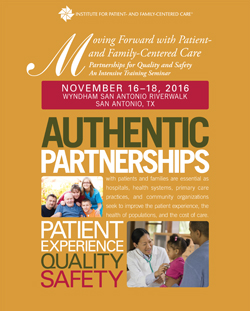 IPFCC is thrilled to announce that its Moving Forward with Patient- and Family-Centered Care: Partnerships for Quality and Safety ~ An Intensive Training Seminar will be in San Antonio, Texas, November 16-18, 2016. IPFCC is thrilled to announce that its Moving Forward with Patient- and Family-Centered Care: Partnerships for Quality and Safety ~ An Intensive Training Seminar will be in San Antonio, Texas, November 16-18, 2016.
The seminar will be held at the Wyndham San Antonio Riverwalk. Along the historic San Antonio Riverwalk—a network of walkways tracing the San Antonio River as it winds through the city—the hotel is within walking distance of other attractions.
A consortium of organizations will be partnering with IPFCC to bring the Seminar to San Antonio. Thanks to MEDNAX for its Leadership Support, and to Baptist Health System and Children’s Hospital of San Antonio, Program Partners; Methodist Healthcare System, Southwest General Hospital, and University Health System, Program Support; and Methodist Healthcare Ministries for its donation.
|
June IPFCC Webinars |
|
Upcoming IPFCC Webinars:
Involving Physicians in Patient- and Family-Centered Initiatives – Applying Principles to Practice
June 7, 2016
Join Bill Schwab, MD, Professor, and Vice Chair of the Department of Family Medicine and Community Health at the University of Wisconsin School of Medicine and Public Health. Participants will explore strategies to engage physicians in developing partnerships with patient and families in clinical care and in the planning and implementing of change and improvement. Bill will share key principles, examples of physician participation, and guidance for addressing challenging situations.
Developing and Maintaining a Peer Mentor Program
June 16, 2016
Join Stacy Brand, MBA, Outreach Manager for the Transplant Center at the University of Michigan Health System (UMHS) in Ann Arbor, Michigan, and Cedric Clark, Kidney Transplant Peer Mentor for the UMHS Transplant Center, to learn about how the UMHS Transplant Center created a peer mentor program and partnered with the UMHS Patient and Family Centered Care Program to develop a standardized peer mentor training for all departments. Successes and challenges of creating and sustaining a program—including developing, training, and managing peer mentors—will be discussed.
IPFCC’s webinars are a cost-effective educational resource. Cost is per line, so a group of any size can participate from the same location on one line. Handouts and supplemental resources are included with registration. Want people to participate from more than one location? IPFCC offers a discount for additional lines.
Learn more about webinar faculty, learning objectives, and Pinwheel Sponsor discounts.
|
Patients’ and Consumers’ Use of Evidence ~ Health Affairs, April 2016 |
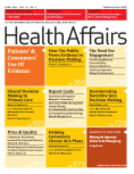 The theme of the April 2016 issue of Health Affairs is Patients’ & Consumers’ Use of Evidence. In his editorial, Alan R. Weil, Editor-In-Chief, writes about The Patient Engagement Imperative, noting that the use of the term “noncompliant” is “slowly being replaced with recognition that the patient is coproducer of the outcome for which the physician is now being held accountable. Enter patient-centered care, with the attendant need for a better understanding of patient goals, better methods for engaging patients in their care, and better measures of outcomes that have meaning for patients.” The theme of the April 2016 issue of Health Affairs is Patients’ & Consumers’ Use of Evidence. In his editorial, Alan R. Weil, Editor-In-Chief, writes about The Patient Engagement Imperative, noting that the use of the term “noncompliant” is “slowly being replaced with recognition that the patient is coproducer of the outcome for which the physician is now being held accountable. Enter patient-centered care, with the attendant need for a better understanding of patient goals, better methods for engaging patients in their care, and better measures of outcomes that have meaning for patients.”
The issue is jam-packed with interesting articles. Topics include: Importance of Patient Engagement; Engaging Patients in Clinical Care; Engaging Patients on Price & Quality; Consumer Choices in ACA Marketplaces; Ratings & Report Cards; Narratives in Decision-Making; and much more.
Learn more.
|
|
Care Culture & Decision-Making Innovation Collaborative
The National Academy of Medicine’s (NAM), Care Culture and Decision-Making Innovation Collaborative met May 18th in Washington, D.C. The focus of the meeting was the “strategic priorities in advancing the evidence base for patient- and family-engaged care.”
The chairs of the collaborative are Mary D. Naylor, PhD, RN,
University of Pennsylvania, and William D. Novelli, MA, Georgetown University.
Agenda items for the May meeting included:
- The state of the evidence for patient- and family-engaged care;
- Point of care facilitation of patient- and family-engaged care;
- Policy priorities for patient- and family-engaged care and research; and
- Issues and opportunities for collaborative action.
Invited participants included representatives from hospitals and health care systems, nonprofit organizations, including IPFCC, decision science practitioners, government agencies “actively involved in patient care or programs and policies centrally concerned with the identification and application of best clinical services” and patient and family advisors.
|
Celebrate Health Risk Management Week: June 20-24, 2016
|
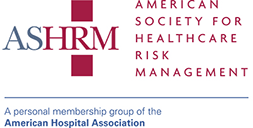
Celebrate the American Society for Healthcare Risk Management (ASHRM) Healthcare Risk Management (HRM) Week, June 20-24, 2016, to show appreciation for the work that risk management and patient safety professionals do to ensure patient safety. ASHRM—a campaign partner on IPFCC’s Better Together Campaign—offers a variety of resources for celebrating HRM Week.
For more information….
|
Links
|
|
|
Previous Issues |
|
|
About Us
|
Founded in 1992 as a nonprofit organization, the Institute for Patient- and Family-Centered Care works to advance the understanding and practice of patient- and family-centered care in all settings where individuals and families receive health care. |
|